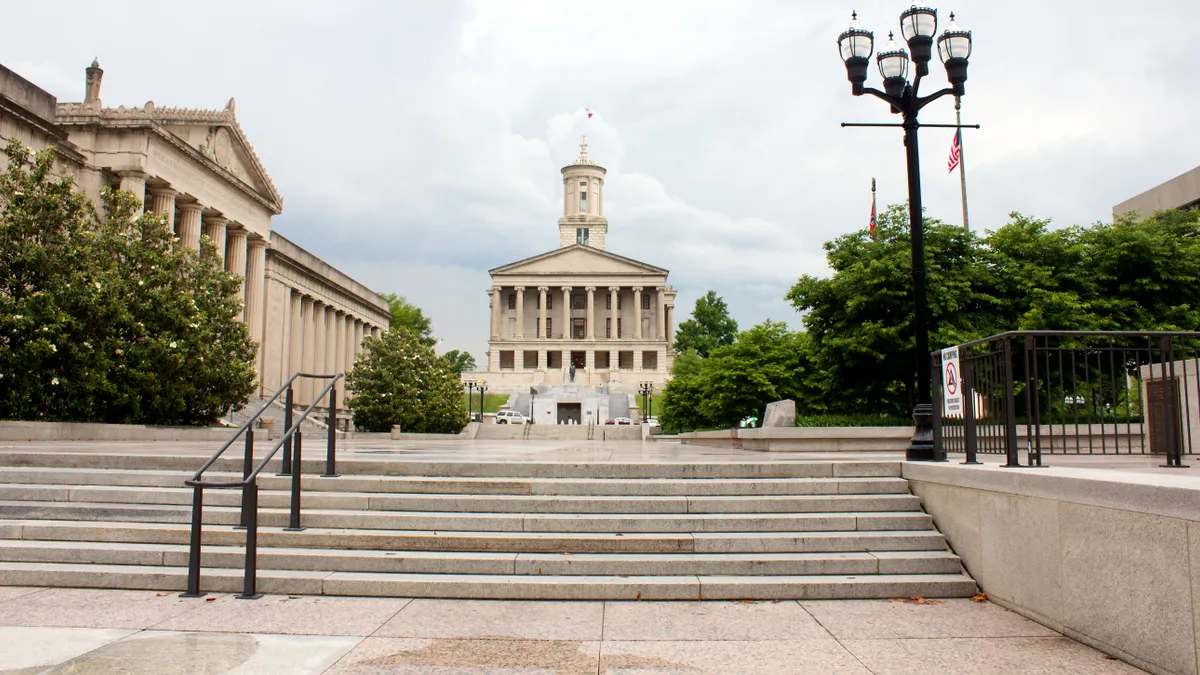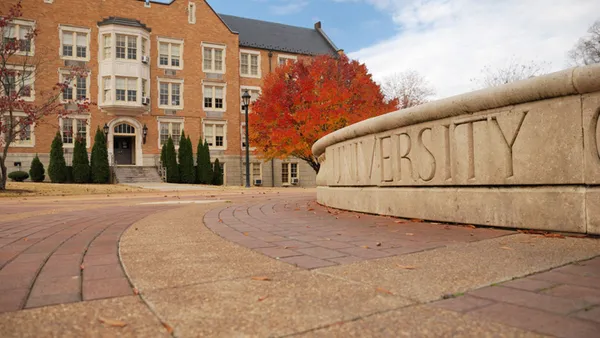Dive Brief:
-
Tennessee may owe its public historically Black university up to $544 million due to chronic underfunding, according to a state legislative analysis.
-
The audit found the state didn't properly match federal land-grant funds to Tennessee State for decades, and some lawmakers are pushing to make up for the shortfall, according to local media reports.
-
Megadonors and recent federal actions have given some HBCUs a financial windfall over the past year, but experts note that more needs to be done to make up for a long history of underfunding and systemic racism.
Dive Brief:
Tennessee State University, the state's only public HBCU, and the University of Tennessee, the state's flagship school, are land-grant institutions, which receive annual funding from the federal government.
The state was supposed to match the amount of federal money going to each school dollar-for-dollar. The legislative analysis, however, shows the state's funding for Tennessee State fell short of what it was due for decades.
A legislative committee will hold sessions to determine how much the state owes the HBCU, according to a local media report. The committee said the university could receive between $150 million to $544 million, according to a university release.
To rectify the underfunding, the state should give the money in an unrestricted manner and not have it be so "stretched over time that it works against them," said Felecia Commodore, an education professor at Old Dominion University, in Virginia.
Distributing the money over a long period could allow issues that could be addressed with funding now to compound, she added. "Ten years from now, that extra million dollars isn't going to go as far as it does now."
Applauding the study's findings, Tennessee State President Glenda Glover said in the statement that officials are "excited about the possibilities of what this means for the University." Glover added that the university's lack of funds has driven some students away and prevented it from launching "innovative programs."
Around half of Tennessee State's undergraduates receive Pell grants, compared to around one-quarter of students at the U of Tennessee, according to federal data. "They have students who have high need, and they have already been supporting those students with less money than they should have had," Commodore said. "Imagine what they could do with more money."
The news comes on the heels of the state of Maryland agreeing to pay its four HBCUs $577 million over a decade to settle a 15-year lawsuit. The complaint alleged that the state's predominantly White institutions were undercutting the HBCUs by duplicating their programs.
The Maryland HBCUs will be able to use the funds in various ways, including for scholarships, recruiting faculty and developing new programs.
A 2013 report from the Association of Public and Land-grant Universities suggests Tennessee State is just one of many institutions that haven't been receiving their due funding.
Nearly two-thirds of 18 colleges given land-grant status under the Morrill Act of 1890 did not receive their full amount of matched funds from their states between 2010 and 2012, the report explains.
Some HBCUs — including Florida A&M and South Carolina State universities — only received half of what they were due. Combined, schools were shorted by nearly $57 million during the period studied.















